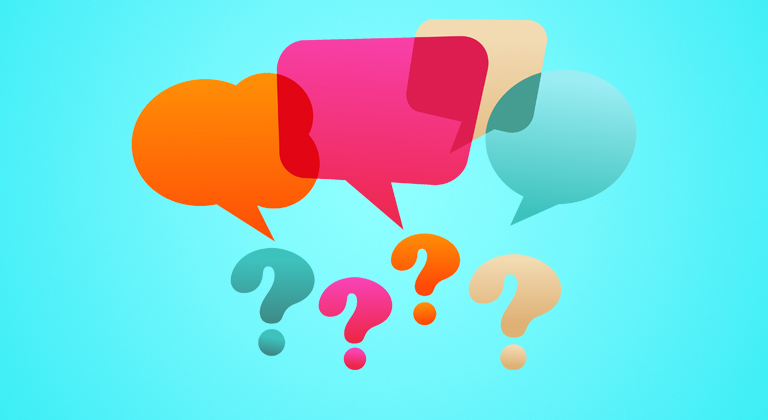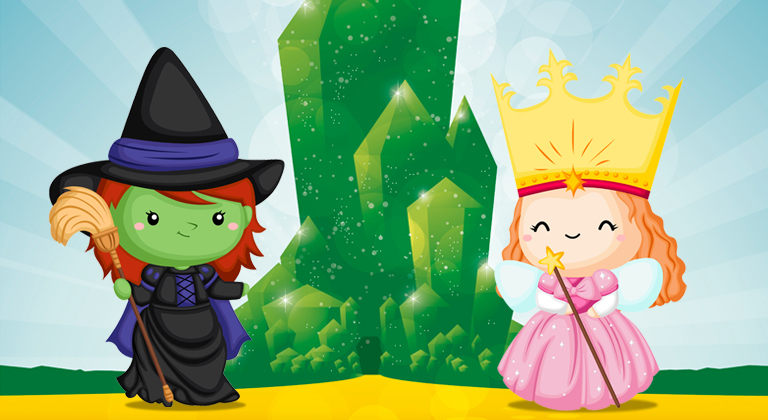The Art of Ambiguous Endings
By: Ginger | Posted on May 2, 2025
When done right, an ambiguous ending becomes the part of your story that readers talk about long after the final page. When done wrong, it can be maddening, risking not only reader frustration but also the kind of backlash that leads people to abandon your work or even warn others away. So why do these kinds of endings often lead to deeper emotional investment, more buzz, and greater loyalty? And how can you craft one that feels intentional and satisfying rather than confusing or disappointing? Those are exactly the questions Ginger explores in today’s blog, using real-world examples, practical techniques, and even a few cautionary tales. With tips on planting clues, maintaining the balance between mystery and resolution, and tailoring your ending to your genre and audience, this post is packed with actionable advice for any author ready to turn their final pages into powerful conversation starters. One of my favorite… Read More >
Mastering the Cliffhanger
By: Ginger | Posted on April 25, 2025
More than just a plot device, cliffhangers are a strategic storytelling tool that can turn casual readers into devoted fans. Whether used at the end of a chapter or in the final lines of a book, a well-placed cliffhanger fuels momentum, builds anticipation, and drives series read-through. When used effectively, they become one of the most powerful tools in a writer’s arsenal. In this week’s blog, Ginger explores a variety of ways authors can harness the power of cliffhangers in their writing. Drawing on examples from bestselling books across genres, he outlines practical techniques for crafting compelling hooks at both the chapter and series level. On top of that, he offers guidance on when cliffhangers work best, when they risk frustrating readers, and how to strike the perfect balance. If you’re aiming to deepen engagement and make your work truly unputdownable, mastering the art of the cliffhanger is essential. A… Read More >
What Wicked Can Teach Authors About Adaptation
By: Ginger | Posted on April 11, 2025
Many authors dream of seeing their books transformed into Broadway sensations or blockbuster films—but the journey from novel to script isn’t always smooth, or even successful. Even with industry interest, the adaptation process can be full of creative compromises, unexpected detours, and reinventions that risk losing the heart of the original story. That’s what makes Wicked such a fascinating case. Originally a novel, then a record-breaking musical, and now a critically acclaimed film, Wicked has thrived across a variety of adaptations. In today’s blog, Ginger digs into Wicked’s wildly successful evolution to uncover what it got so right, and what authors can learn from its journey. From story structure and thematic depth to the art of staying flexible while preserving your story’s core, Wicked offers authors a blueprint for crafting work that can leap off the page and come alive on stage or screen. I recently watched the Wicked movie… Read More >
Should Your Redeemed Villain Live or Die?
By: Ginger | Posted on April 4, 2025
There’s something irresistible about watching a character we once hated fight their way back to redemption. But not all former villains get to ride off into the sunset. Often, they’re still sacrificed for the good of the story. But whether they live or die is not determined by flipping a coin. As an author, it’s your job to weigh several key factors when deciding the ultimate ending for your reformed antagonist. In today’s blog, Ginger walks us through how to evaluate your villain’s past sins and redemption arc to strike the right balance between satisfying storytelling and reader expectations. From the severity of their actions to the motivations behind their transformation, he breaks down the essential elements that should guide the fate of your redeemed villain. Whether it’s Spike from Buffy the Vampire Slayer or Negan from The Walking Dead, I’m a sucker for a bad guy who eventually sides… Read More >
The Key to Selling Books: Find Your Hook
By: Ginger | Posted on March 14, 2025
If you want to sell more books, you need a hook that stops readers in their tracks. With thousands of new titles flooding the market every day, your book needs a way to stand out. A strong hook is what keeps readers from scrolling past your title and onto the next, as it compels them to stop and find out more! In today’s blog, Ginger breaks down what makes a killer book hook, how to identify yours, and why some of the most successful self-published books of all time owe their rise to a single, unforgettable concept. He’s sharing actionable tips to help you distill your book’s premise into a gripping one-liner that grabs attention, strengthens your marketing, and ensures your story doesn’t disappear into the void. A few months ago I wrote a blog post called “the only four ways to sell books” and I wanted to revisit one… Read More >
What Writers Can Learn From the James Bond Formula
By: Ginger | Posted on March 7, 2025
This past February, Amazon MGM Studios made a billion-dollar deal to take over control of the James Bond franchise. After five years without a Bond film, this seems to signal that the super spy is on the verge of a major comeback. But for many familiar with the studio’s history, there are legitimate concerns about this return. Will the online retailer turned movie studio stay true to the Bond formula that has kept the franchise running successfully for six decades, or will they fumble it like they did with The Rings of Power? Because there’s no doubt, the existing 25 films follow a well-established “Bond formula” that fans have come to know, love, and most importantly, expect. And that’s the lesson Ginger aims to teach us this week. The success of James Bond isn’t just about fast cars and shaken martinis, but about understanding audience expectations and delivering on them…. Read More >
Is the Book Always Better Than the Movie?
By: Ginger | Posted on February 21, 2025
We’ve all watched a movie adaptation of a book we love, only to walk away shaking our heads, muttering that “the book was better”. It happens so often that it feels like an unshakable truth—and as authors, let’s be honest, there’s a little satisfaction in knowing that a novel’s depth and nuance are hard to replicate on screen. But every now and then, a film or TV show not only gets it right but actually improves on its source material, capturing the essence of a book while also fixing its flaws. Writers spend countless hours crafting intricate worlds, shaping unforgettable characters, and fine-tuning every detail—so why do some stories translate brilliantly to film while others lose some of their magic? And perhaps more importantly, what can authors learn from these successes and failures? With the small screen version of Reacher returning for Season 3 this week, there is no better… Read More >
The Five Stages of Writing a Story (According to Lucas)
By: Ginger | Posted on February 7, 2025
In their minds, I think most non-writers imagine all authors to be pantsers. That is, we simply sit down in front of a keyboard and start typing away until we arrive at a finished piece. Of course, the reality is very different. Even if you are a pantser by nature, there are still plenty of steps standing between initial idea and finished product. A successful author only makes it look easy! As Ginger explains in today’s blog, his own writing journey has evolved over the years to a more structured approach than when he first started. But regardless of your style—whether you lean more towards spontaneity or meticulous planning—he believes there are at least five essential stages to successful storytelling. And by using the evolution of the Star Wars saga as an example, he takes us through each stage step-by-step—explaining why each is crucial and how they all come together to tell… Read More >
Is it worth using Unreliable Narration in your stories?
By: Ginger | Posted on January 31, 2025
One of the most powerful tools in an author’s arsenal is the ability to shape a reader’s perception of reality—only to twist that reality on its head. Unreliable narration is one of the most effective ways to do this, drawing readers into a story where the truth is never quite what it seems. When done well, it turns storytelling into an immersive puzzle, compelling readers to read between the lines, question what they’re being told, and uncover hidden truths. Unreliable narrators make for some of the most gripping and memorable characters, as their motives, biases, or even their grasp on reality keep readers guessing until the very end. From psychological thrillers to literary classics, unreliable narration has long been used to create suspense, deepen character development, and deliver shocking twists. But how can you apply this technique to your own writing? In today’s blog, Ginger explores how to do just… Read More >
What can writers learn from Colleen Hoover?
By: Ginger | Posted on January 24, 2025
When it comes to staggeringly successful self-published authors, the name Colleen Hoover should top anyone’s list. Since publishing her debut novel in 2012, she has gone on to become a literary phenomenon with over 20 million books sold and named one of the world’s most influential people in 2023. Her rise to fame should be studied as a blueprint by other aspiring writers, which is exactly what Ginger aims to help with in today’s blog as he breaks down everything that Colleen does right. By analyzing her ability to craft emotionally impactful stories, foster deep reader connections, and navigate the ever-changing publishing world, Ginger uncovers strategies that resonate far beyond the page. Hoover’s career offers countless lessons, from the art of creating unforgettable characters to leveraging modern tools like social media to engage and grow a devoted readership. Whatever skill it is you need to grow, there’s plenty to learn… Read More >













